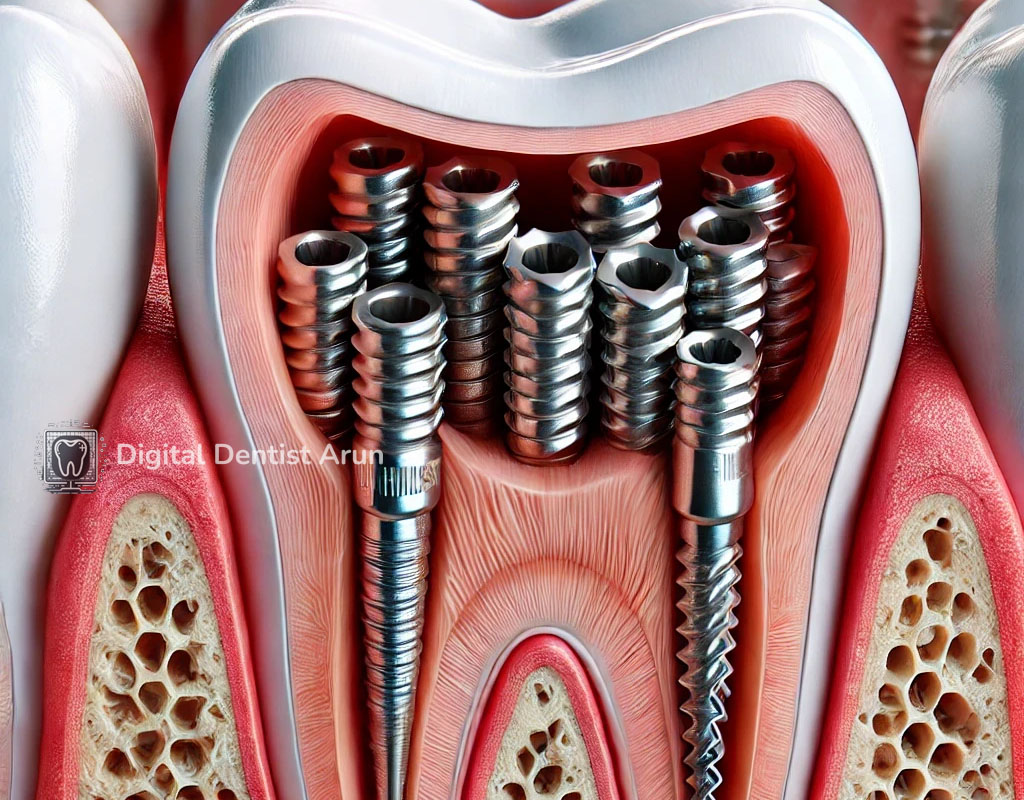As the use of electronic cigarettes rises, so too does the need for dental professionals to understand their impact on oral health, particularly in relation to peri-implantitis. E-cigarettes have been marketed as a safer alternative to smoking, but recent findings suggest that they can still lead to severe complications around dental implants. As dental surgeons, understanding the nuances of how e-cigarettes affect implant health is crucial for better treatment planning and patient care.
For a more in-depth look at how peri-implantitis is studied and analyzed, you can refer to the latest research in Journal of Oral Implantology
Understanding Peri-Implantitis and its Triggers
Peri-implantitis is an inflammatory condition that results in the destruction of the bone and tissue surrounding dental implants. If left untreated, it can lead to implant failure, bone loss, and chronic infection. Common triggers include poor oral hygiene, bacterial infection, and tobacco use. With the rise of e-cigarettes, we must ask ourselves: Are these devices just as detrimental to implant health as traditional cigarettes?
What the Studies are Showing: The Link Between E-Cigarettes and Peri-Implantitis
Recent research indicates that electronic cigarettes, while free from the harmful tar found in regular cigarettes, still pose significant risks to oral health. A primary culprit is nicotine, a shared ingredient between both traditional and electronic cigarettes, which reduces blood flow to the gums, impairing the healing process post-surgery or implantation. Additionally, the vapor emitted from e-cigarettes contains toxic chemicals like formaldehyde and acrolein that irritate the gums, contributing to the onset of peri-implantitis.
This is where the story gets even more interesting for dentists. These chemicals, when inhaled, create a dry mouth environment, further exacerbating bacterial growth around implants. And we know what happens next — increased inflammation and infection, which can eventually compromise the longevity of dental implants.

Why Dentists Should Be Concerned: Effects on Treatment Outcomes
For oral surgeons and implantologists, patient outcomes are top priority. When a patient uses electronic cigarettes, it adds an additional layer of complexity to the post-surgical healing process. The reduced oxygenation and blood supply to the gum tissues mean slower healing, and the increased bacterial load around implants could lead to early implant failure. Given the high investment and expectation from patients undergoing implant surgery, it’s essential to address e-cigarette use during the consultation phase.
In addition, patients may assume that switching to e-cigarettes is a positive step for their health. As professionals, it’s up to us to educate them on how vaping still carries significant risks — particularly in the context of oral health and implants.
Fun Fact: A Sneaky Culprit in the Vapor?
Now, here’s something you might find surprising. While the conversation usually revolves around nicotine, it’s the lesser-known propylene glycol, a common component of e-cigarette vapor, that also plays a nasty trick on oral tissues. Propylene glycol dries out the mouth, creating an environment where bacteria thrive — a true enemy of dental implants.
Dentists need to engage patients in discussing the composition of the vapor they’re inhaling, because even the flavorings in e-cigarettes could irritate oral tissues, leading to increased peri-implantitis risk.
Best Practices for Managing Peri-Implantitis in E-Cigarette Users
As dental professionals, it’s essential to take a proactive approach to prevent and manage peri-implantitis in patients who use e-cigarettes. Here are some effective strategies to consider:
- Comprehensive Oral Hygiene Education: Reinforce the importance of regular brushing, flossing, and the use of antimicrobial mouthwash to minimize bacterial buildup around the implants.
- Frequent Follow-Ups: For patients who use e-cigarettes, scheduling more frequent checkups can help monitor for early signs of peri-implantitis and allow for timely intervention.
- Non-Surgical Treatments: Scaling, root planing, and localized antibiotic therapy can help manage peri-implantitis in its early stages, especially for patients not ready to quit e-cigarettes.
- Behavioral Counseling: Engage patients in discussions about reducing or quitting e-cigarette use. Offer supportive resources, as cutting down on vaping can significantly improve oral health outcomes.
Final Thoughts: Shaping the Future of Implantology
The rise of electronic cigarettes is an emerging challenge for dental surgeons, especially when it comes to implantology. While e-cigarettes may reduce some risks associated with traditional smoking, they are far from harmless — particularly when it comes to peri-implantitis.
By staying informed about the latest research and keeping open lines of communication with patients, dental professionals can take an active role in preventing implant complications linked to e-cigarette use. While patients may enjoy the convenience and perceived safety of vaping, the risks to implant longevity and oral health are real, and it’s our job to make sure they understand the full picture.
By addressing these concerns head-on, we can ensure better outcomes, higher patient satisfaction, and long-term implant success.

